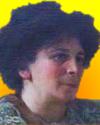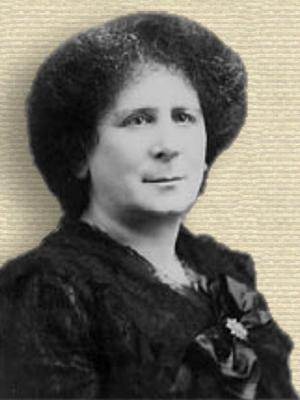 (source)
(source)
|
Hertha Marks Ayrton
(28 Apr 1854 - 26 Aug 1923)
English electrical engineer, inventor and mathematician who invented a fan, a manual flapper on a pole, to create vortices and make waves to disperse poison gas attacks on trenches in WWI. The British War Office deployed more than 100,000 of them. She was the second wife of physicist, William Edward Ayrton.
|
Science Quotes by Hertha Marks Ayrton (2 quotes)
An error that ascribes to a man what was actually the work of a woman has more lives than a cat.
— Hertha Marks Ayrton
In Letter, Westminster Gazette (14 Mar 1909). As cited in Joan Mason, 'Hertha Ayrton (1854-1923) and the Admission of Women to the Royal Society of London', Notes and Records of the Royal Society of London (Jul 1991), 45, No. 2, 201-220. Ayrton wrote so that Marie Curie should be recognized for the discovery of radium, rather than being attributed to Pierre Curie.
In experimenting on the arc, my aim was not so much to add to the large number of isolated facts that had already been discovered, as to form some idea of the bearing of these upon one another, and thus to arrive at a clear conception of what takes place in each part of the arc and carbons at every moment. The attempt to correlate all the known phenomena, and to bind them together into one consistent whole, led to the deduction of new facts, which, when duly tested by experiment, became parts of the growing body, and, themselves, opened up fresh questions, to be answered in their turn by experiment.
— Hertha Marks Ayrton
In The Electric Arc (1902), Preface, iii. Ayrton described the growth of her published work on the electric arc, from a series of articles in The Electrician in 1895-6, to the full book, which “has attained to its present proportions almost with the growth of an organic body.”
See also:
- 28 Apr - short biography, births, deaths and events on date of Ayrton's birth.
- The Electric Arc (reprint), by Hertha Marks Ayrton. - book suggestion.

 In science it often happens that scientists say, 'You know that's a really good argument; my position is mistaken,' and then they would actually change their minds and you never hear that old view from them again. They really do it. It doesn't happen as often as it should, because scientists are human and change is sometimes painful. But it happens every day. I cannot recall the last time something like that happened in politics or religion.
(1987) --
In science it often happens that scientists say, 'You know that's a really good argument; my position is mistaken,' and then they would actually change their minds and you never hear that old view from them again. They really do it. It doesn't happen as often as it should, because scientists are human and change is sometimes painful. But it happens every day. I cannot recall the last time something like that happened in politics or religion.
(1987) -- 


